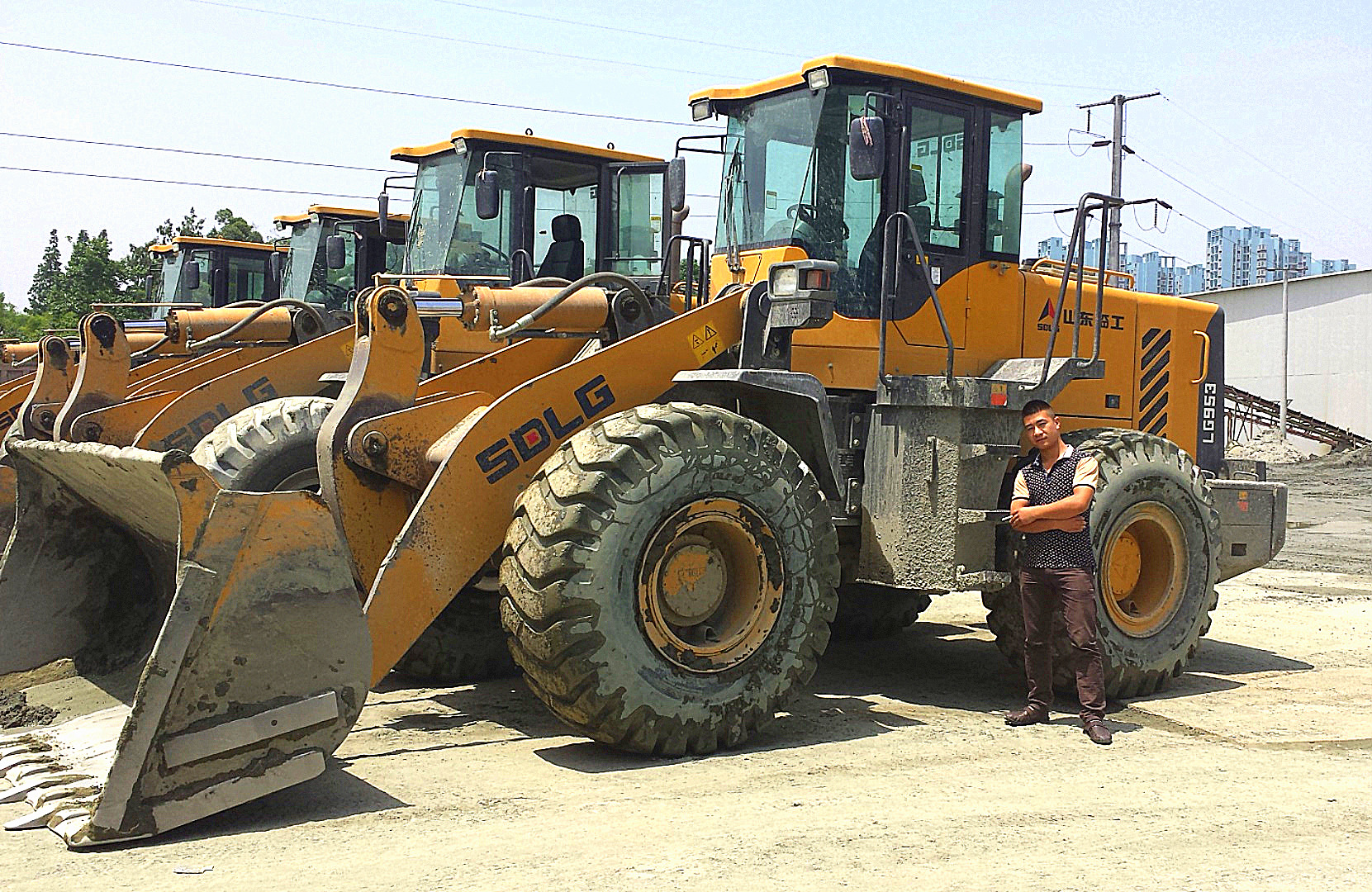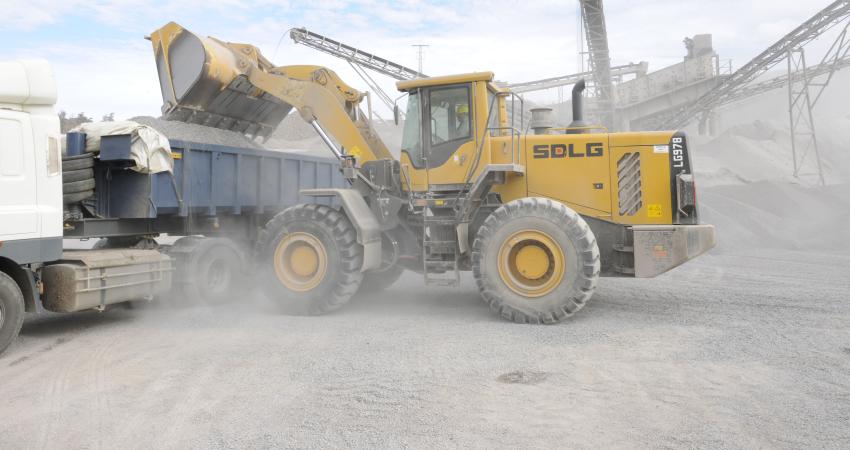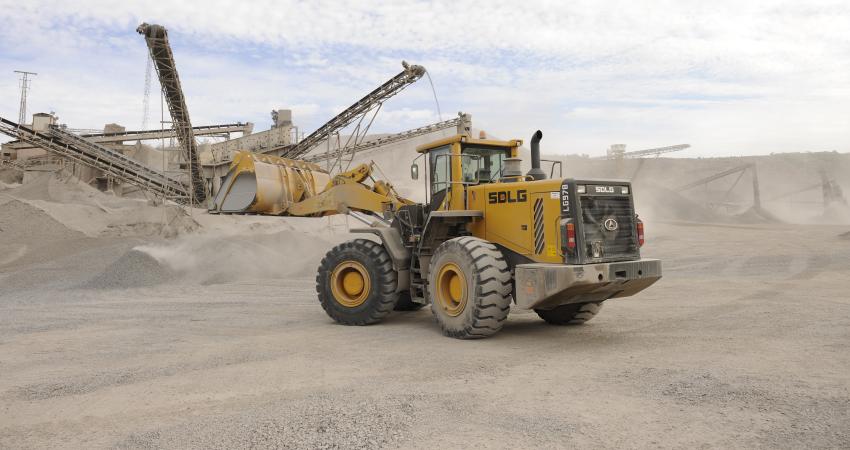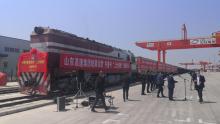
A popular tourist destination for nature lovers keen to capture a glimpse of the Giant Panda in its natural habitat, Chengdu in Sichuan Province, south-west China is also the location of a construction boom, writes Guy Woodford.
It may be more famous for a certain animal species, but the Chinese city of Chengdu is now as much as a haven for senior citizens who are investing in retirement property and driving regional housing demand.
The increase in demand for housing in second-tier cities such as Chengdu has attracted international developers who are moving away from the saturated Shanghai and Beijing property markets.
One privately-owned demolition and aggregates company that is benefiting from this upturn in activity is Yi Mao Company Limited (YMCL), located in the north-east of Chengdu. YMCL demolishes old or unsuitable buildings that do not appeal to the newly arriving residents and then separates and extracts aggregate material from them to be reused. The sand and gravel is crushed and blended to produce concrete – and then used to construct new buildings. The company was founded in 2002 and has the capability to process more than 1.5 million m3 of aggregate/year.
YMCL uses a fleet of four
The company’s managing director, Zhang Jun, says the increased demand for housing is putting added pressure on YMCL, but the company’s SDLG machines are helping it meet the growing demand.
“As privately-funded housing ramps up, we are working to ever tighter deadlines for the efficient and punctual delivery of raw materials to building projects. That means we need the support of machines that are well-built, reliable and cost-effective to maintain. We purchased our first SDLG machine in 2003 when we had just started up the operation. The brand is very reputable in south-western China and it was through the recommendation of my friends working in the same industry that I made the decision to buy one myself.”
On average, the SDLG LG953 loaders take three minutes to complete a full cycle, loading 3m3 of aggregate from the demolition site to the gravel pit. The machines feature a Weichai WD10G220E21 engine with a 162kW power rating. The average zero-failure timespan of 720 hours is said by SDLG to give users unrivalled reliability levels. With the flexibility to operate in multiple applications from hard rock to soft sand, the 5tonne capacity LG953 also offers an ergonomic design including wraparound glass window and air-conditioned cab, allowing it to maintain productivity in all weather and across a variety of job sites.
Jifeng Great Wall Lingong Construction Equipment Ltd (JGLCE) is SDLG’s authorised dealer in Chengdu and its parts warehouse is conveniently located near YMCL, offering fast and efficient maintenance and service.
The company saw a huge spike in demand for construction equipment after the 2008 earthquake which devastated the county of Wen Chuan, 90km to the north-west of Chengdu. Following the disaster China’s central government announced a US$146.5 billion (CNY1 trillion) investment to rebuild the local area and this drove demand for several years. That growth has since slowed, although things are starting to pick up again, particularly with the recent housing boom, says Wang Gang, managing director of JGLCE.
“There is a vast area of China across the south-west that is at least 10 years behind the first-tier cities on the east coast. But in recent years we have seen activity levels rise, particularly real estate construction,” he explains.
To keep JGLCE’s customers running their equipment fleets at their most efficient, it has launched a program allowing them to trade in their used SDLG machines to purchase new ones.
“A sustainable business needs to be innovative and customer-oriented. We are committed to supplying our customers with the latest machinery and fast and efficient service to build and maintain a strong and lasting relationship,” concludes Gang.
Teatime for Pandas
Sichuan Province is home to more than 30% of the world’s giant pandas, perhaps the world’s most famous endangered species. The province’s UNESCO World Heritage site includes a number of sanctuaries that protect the pandas by providing a safe natural habitat. The region is also recognised for its gastronomy and is famous as the start of the Tea Horse Route from the seventh century Tang Dynasty, along which tea was transported 2,300km to Tibet and Nepal.









